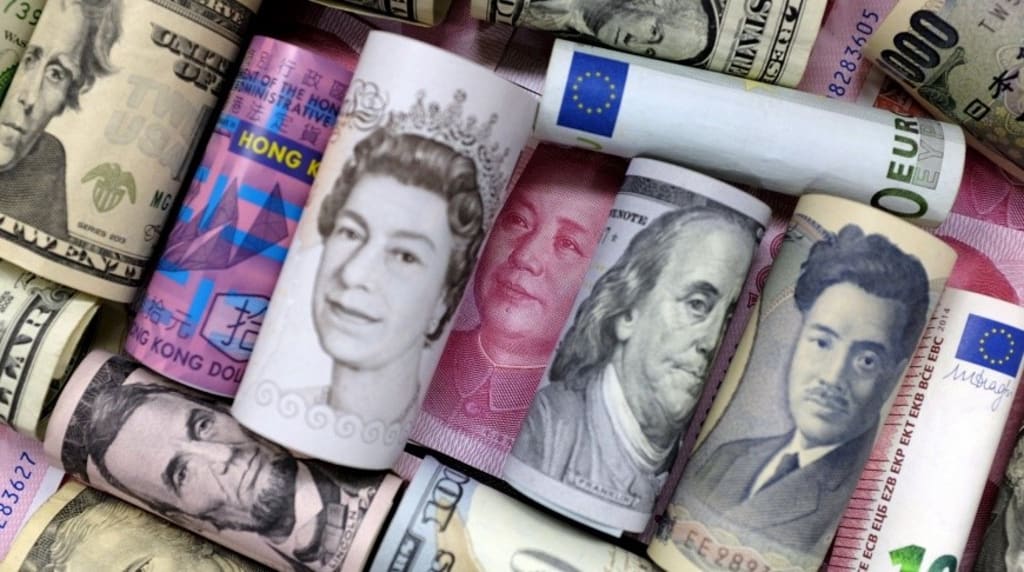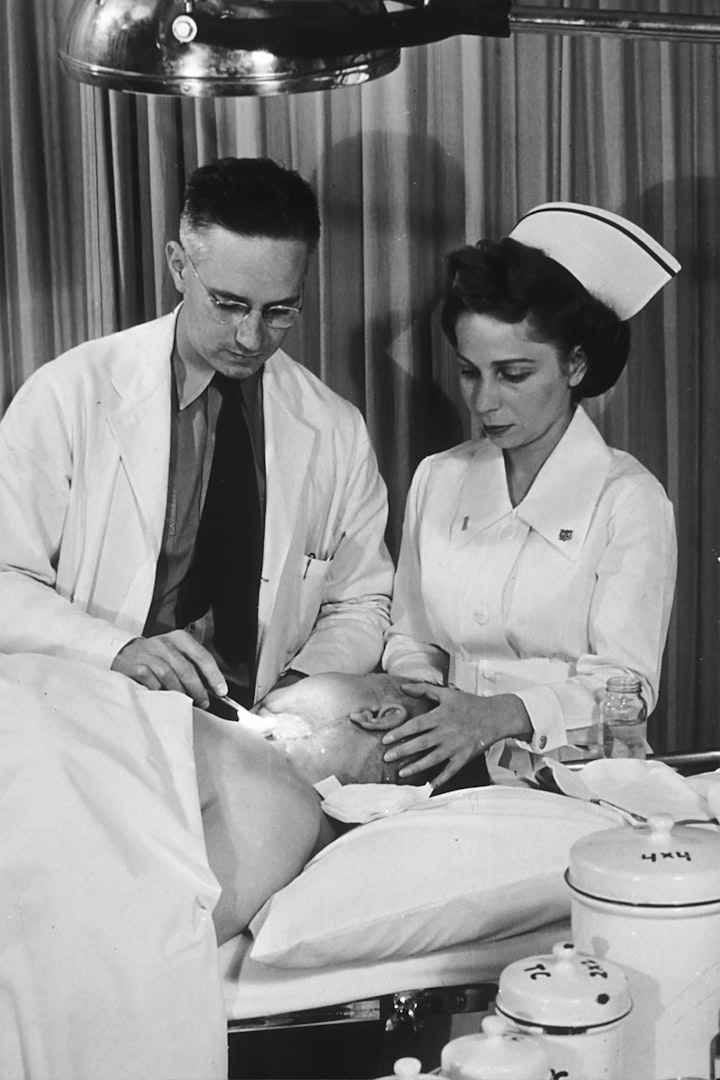Tipping in different countries of the world: to whom, how much and when to tip
Tipping is not only a universal motivator for service personnel, but also a demonstration of your generosity and familiarity with the culture and customs of another country.

Exploring the diverse customs of tipping from Great Britain to Thailand becomes simpler with the right resources. Tipping practices vary widely across countries, posing a challenge for many travelers. It's especially helpful when restaurants use services like QR code menus, where tipping guidelines can be clearly presented. This clarity helps avoid the awkwardness of uncertain tipping and disappointed expectations from service staff. To delve into the world of convenient QR code menus and gain insights into global tipping etiquette, visit Oddmenu, a service that simplifies this aspect of dining out.
Thailand
Many travelers face the problem of tips. Every country has its own rules on this matter. It is convenient when the amount is clearly spelled out in the menu, and it's not good when, when leaving, you read it on the waiter's face with unfulfilled hopes.
The question of tips is really a delicate one. If you leave too much money, you will be seen as tactless. Give less than the customary amount and you will be branded as a cheapskate. In some countries, service workers make money from tips; in others, offering extra money is tantamount to insulting.
Let's figure out how to tip properly. Let's move from West to East on this journey.
Western countries
The "homeland" of tips is considered Great Britain: it was here at the beginning of the XVIII century that tea receptions were arranged in the gardens. And to hurry the waiters, English ladies and gentlemen gave them a coin "to insure prompt" - "for prompt service". Later this phrase in English was reduced to the abbreviation "tip", which is used to this day. Therefore, being in Great Britain, try to leave some amounts to the staff, so as not to upset Her Majesty's subjects with their impoliteness.
In restaurants in the United Kingdom it is customary to tip 10-15%, with the exception of those places where the cost of service is specified outright. In pubs, it is customary for guests to "buy" the bartender a drink at their own expense. Of course, the person behind the bar does not get the drink, but the cash equivalent - otherwise all the bartenders in England would be drunk all the time.
In English cabbies it is not obligatory to leave a tip, but if the driver has been particularly kind, he will not mind a reward of 10% of the cost of the trip at all. The same rule applies to tour guides and tour bus drivers. It is considered polite to leave the housemaids £10-20 for a week's stay in a room and £2 each for the beauticians in the beauty saloons.
In France, especially in Paris, you have to spend a lot of money on tips. An additional 15% for service will already be included in the restaurant bill, but it is considered good form to leave a couple of euros on the plate with the check. Tipping in French is "pourboir", which translates roughly as "money to have a drink or two". So remember that you're giving your money for a good cause, and don't embarrass the French or yourself.
By the way, in the resort towns in the south of France, there are places where waiters do not get paid at all, but live solely on the "donations" of tourists. If you sit down for a cup of coffee in a small cafe, leave a generous tip. Let no one leave offended!
In expensive French restaurants it is worth tipping the checkroom clerk: 1 euro for each item of outerwear. The same reward will be expected from you by the doorman or the theater employee who escorted you to the place.
Courtesy in European countries is self-evident, but you are expected to return the courtesy in monetary terms. Waiters can be students as well as middle-aged, experienced people for whom tips are a big part of their income.
In Italy, Spain, and Portugal, normal tips are 5-10% of the cost of service. Only in Italy they are often already included in the check and even specified in the menu, while in Spain and Portugal they are usually not, although it's worth checking this point. It is customary to leave 1-2 Euros for the chambermaids, and up to 5 Euros if you stay at a five-star hotel. The porter is paid 1-2 euros per luggage unit, the attendant at the theater or cinema - from 50 euro cents to 1 euro.
In Greece we are accustomed to 10%, in particularly expensive restaurants you can leave up to 15%. If you dine in a simpler cafe, make sure that the cost of service is not included in the bill at once. Hotel maids and porters will be happy with 1-2 euros, cab drivers - from 5 to 10% of the trip cost. Similar rules apply in Slovenia and Croatia.
In the Czech Republic, the tip is about the same - about 10-15% of the bill. In Prague, they usually do not leave coins and bills on the table, but tell the waiter, who brought the check, the total amount - very convenient if you pay by card.
In Germany and Austria, it is customary to tip 5-10% of the check, depending on how much you like the service. Tipping Russian tourists seems to German waiters and cab drivers quite good - from stingy locals you can't expect such a tip. So, leaving an ordinary tip by our standards, you will be a welcome guest in any establishment.
In Austria there is a convenient and socially acceptable way not to tip at all: if you have asked the waiter three times for the bill and have not waited for it, you can get up and leave.
The Netherlands and Switzerland accept very modest tips. This is not surprising: these countries are some of the most expensive in the world. Employees of cafes and restaurants here leave no more than 3-5% of the bill. The Swiss, who know how to count money, will be fine with the fact that you do not leave a tip at the hotel and at a restaurant just round up the amount to a whole number. It's the same in Holland: you can leave no tip at all in cafes and restaurants, but if you really liked the service you can add up to 5% as a compliment to the establishment.
In Scandinavian countries (Sweden, Norway, Denmark) and in Finland tips in restaurants are usually included in the bill, so no one expects additional compensation from you. If you really admire service and cuisine you can leave up to 3-5 % from the bill in the cafe and up to 5-10 % - in a restaurant. A larger amount will be considered as vulgar waste. Tips are not accepted in beauty salons and cabs, but the carrier should offer 1-2 euros. The same amount you can leave to a diligent maid and a good porter.
In the U.S., where the standard of living is high and prices are low, generous tips are customary. Here 15-20% of the bill is considered a normal reward. The tip amount depends on the level of the institution: in a good restaurant it will be about 25%, in a café 15% will be enough. To leave less than 10% of the order is considered bad taste. It can be done only if you are dissatisfied with the service and want to express your indignation.
In America, not only waiters, bartenders and couriers are tipped, but also hairdressers, beauticians and even cab drivers. The latter get the most generous rewards in the U.S. It is not surprising - as usual, the cab driver combines the functions of a carriage driver, psychologist and GPS-navigator.
The tipping culture in America is so well developed that almost anywhere you can tip with a bank card. In cabs, for example, a "smart" terminal is installed that allows you to choose how much to tip the driver. In cafes and restaurants you get a check with a bill and a free line where you can enter the amount you are willing to leave in the establishment.
Tipping is rarely included in the bill, and it will definitely be written on the receipt. Sitting at the bar, leave a couple of dollars for each drink. If you're lucky, your generosity will be appreciated and you'll get another cocktail for free.
It is customary to leave at least $2 a day to the hotel maids and $1 or $2 for the porters for each luggage. It is worth noting that the usual amount of tips varies from state to state. So before you travel, find out what the rules are in the particular city or region where you are going.
Eastern countries
The culture of tipping in the East is markedly different from that in the West. The specific mentality and the large flow of tourists in some countries have an impact on the size of the remuneration.
The situation with tips in Japan is not obvious. The common perception is that you don't leave a tip in this country. If you leave, put a coin on the table, there is a high probability that the waiter will rush after you to return the "forgotten". And if you give money to a hairdresser or cab driver without any ceremony, you might insult him.
However, it cannot be said that the Japanese do not have a system of additional gratuity in principle. Tipping is called "kokorozuke," but it must be handed out with extreme care and according to a special scheme. Unlike European tips, kokorozuke are given before service is rendered, not after. It is not an attempt to bribe or "grease" someone. In Japan, such a gesture is an expression of politeness and courtesy. It is as if the customer is saying, "I know that you will serve me to the highest standard, and therefore I express my gratitude to you in advance.
Indeed, you may receive a higher quality of service after being handed a kokorozuke. However, if you are unsure about the size and appropriateness of such a tip, consult with someone more experienced travelers beforehand.
In Tunisia and Egypt, you don't have to leave a tip at all - in most establishments it is already included in the bill. But in fact, no one has ever managed to leave without a "tribute" to the local staff. So even if you will be put under moral pressure (and the local population working in the tourist sector is famous for its talent for extortion), limit yourself to 5-10% of the cost of services or the bill. You can do the same in Turkey.
In Thailand it is customary to leave a small tip, up to 5-10%. It is not customary to hand over money, but you may accidentally "forget" the change on the table. If you know the manager or the owner of the cafe well, the gratuity may offend him, so be careful.
The maids, cab drivers and porters also leave a small amount "for a tip," but this is not customary in the massage parlor. The situation in Vietnam is similar. In Cambodia, there is almost no tradition of additional remuneration. But if you really like the service and food, you can round up the amount on the check.
About the Creator
Reader insights
Nice work
Very well written. Keep up the good work!
Top insights
Compelling and original writing
Creative use of language & vocab
Easy to read and follow
Well-structured & engaging content
Eye opening
Niche topic & fresh perspectives
On-point and relevant
Writing reflected the title & theme






Comments (1)
This content is very useful and was new for me. Thanks for sharing!🥰